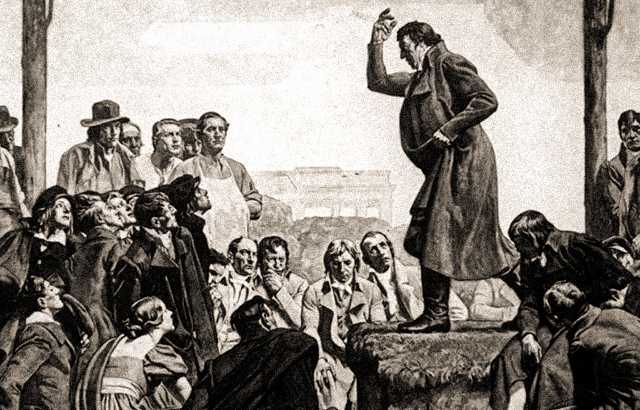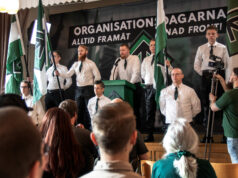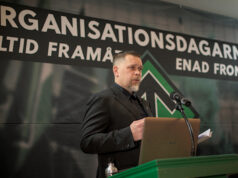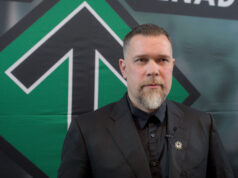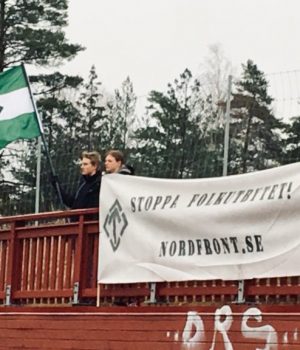OPINION. This is part 2 of 2 of Arnar Styr Björnsson’s essay on the German ethical awakening beginning in the early 19th century.
Adolf Harnack built on the ideas of Schleiermacher and Hegel, about a century later. He was the pre-eminent German theologian of his time and is one of the greatest church historians of all time. He said that even though Jesus still upheld the moral rules of his time, he was progressing toward the idea that the highest morality superseded all external moral rules. Although Jesus upheld the Law of Moses, said Harnack,
the love and freedom that were so evident in his words and parables and the love and freedom he steadfastly set over the Law showed his disciples the paths they had to follow and gave them the courage to break with the Law which Jesus himself still had to allow to remain in force.
In this historicist line of thinking, Jesus foreboded a complete break with the Law although the time had not yet come while he lived. Thus, Harnack asserted that there could never be any conflict between the realms of God and Caesar: “God and Caesar are the lords of two quite different provinces.” Historical progress is made through the use of force in the realm of Caesar. State authority is “based on force, and this is the very reason which, in Jesus’ view, puts them outside the moral sphere […] Law and legal ordinance, as resting on force only, on actual power and its exercise, have no moral value.” Private morality, however, belongs to the realm of God.
He thought of history as the progressive domination of the material world by the spirit, working through man.
What we strive after in the study of history is not the understanding of a mass of individual facts, however important or unimportant, but we want to understand past life in its material and spiritual structure, and we want to understand it as progressive objectification of the spirit and so as progressive mastery of the material.
For the private individual, the political realm has no morality that he can acknowledge. But the political realm has its own morality. The duty of the state is to act with honesty and clarity of purpose. The state decides itself what is moral, and its object is to advance itself and move history forward. The individual’s goodness consists not in fulfilling any law of righteousness, an idea he associated with the Pharisees rather than Christ. Rather,
[…] the Good is life in love and reverence, it springs out of a profound sense of being apprehended by something living and sublime – it is the feeling of being lifted above this fleeting world of time and sense at the same time, the longing to give out in love to the smallest of God’s creatures: it is, finally, the sense of eternal security and repose, as the gift of this Redeeming Love. This feeling alone, which affects both the disposition and the will, is the Good, and a man is only so far ‘good’ as he has something of this spirit in his heart. Virtue, however, which consists in fulfilling some law of righteousness or another, or even all laws that exist (if there ever were such a virtue), has nothing whatever to do with the truly good, but is a poor human, worked-up affair, or at its very best, it is only a kind of ‘substitute’ for real goodness.
The “material and spiritual structure of past life,” revealed through the study of history, are manifested in the institutions which earlier generations produced.
In them the achievements of the generations live on. The historian is therefore chiefly concerned with the social and political order, codes and traditions of law, schools, churches, and cultural institutions. Because they are produced by ideas and because their history is the history of the mind, they can be understood and judged.
One thing learned from his historical study is that war is an essential part of the structure of life. It is required by nature. This line of thought is also found in Schleiermacher, according to whom even wars for increased Lebensraum are morally justified:
Every state needs a sufficiency of soil because it ought not to be dependent [on others] for its essential needs. These essential needs increase, however, if the community of peoples gains in size. The state strives to push back its frontiers, in order to acquire what is lacking; these are wars of need. Thus we can distinguish three different sorts of natural warfare: wars of unification which form the state, frontier wars, or wars which maintain a state of equilibrium, and wars of need which defend the state; the usual distinction, on the other hand, between offensive wars and defensive ones, is an entirely empty one.
The term Lebensraum was first used in a political sense by the German ethnographer and geographer Friedrich Ratzel. In the essay Der Lebensraum, he wrote:
There is a contradiction between the movement of the life that never stops and the space of Earth that doesn’t change. The struggle for space is born out of this contradiction. […] The much-abused and even more misunderstood term “struggle for life,” in fact means first of all “struggle for space.”
According to Ratzel, the differentiation of both organic life and of human societies and states are governed by the same laws. He claimed that: “[Every] new form of life needs space in order to come into existence, and yet more space to establish and pass on its characteristics.” A true science of life cannot separate it from its spatial requirements. However uncomfortable the question of Lebensraum is, it is an inescapable reality that must not be avoided. Like biological life, political and moral life is a struggle:
The given space of every age has decided how far countries have had to expand in order to become in reality ‘world powers’, i.e., to span the earth; and in this general process, every single country, even the smallest, has had its position continually modified by the growth of the whole. Since the size of the earth’s surface sets limits to this development, the zenith can be reached by only a few states at the same time.
One of Harnack’s insights was that the only thing that gives permanence to ephemeral human life are institutions. By that he meant “contracts, constitutions, law codes, school curricula and organization, Church organization, liturgies, catechisms, etc.” These are the concrete results of diplomacy, politics, science, art, religion and war. He was emphatic that,
[…] nothing at all, not even great men and the genius, makes a lasting impression on the human community that has not taken form in institutions. […] However impressive the effectiveness of the individual, however immeasurable the influence of person on person, the totality which social groups as such represent is influenced permanently only by an institution which, whether written or unwritten, gives clear expression of itself in the form it imposes, the goals it inspires and the authority it exercises.
Therefore warfare and military give permanence to life, without which it would be in a fleeting state and would go out of existence. Harnack was aware of this and stated: “Army and science are the two pillars of Germany’s greatness; their cultivation must never cease or stand still.” But the ethical value of warfare resides not only in its function of preserving life from outside factors; it also toughens human life internally. Hegel writes in The Phenomenology of Spirit that a spirit of individualism dominates the youth and is destructive to the nation if it is not suppressed. At the same time however, the power of youth must be recognized as the power of the nation. The nation is individuality, “for itself by other individualities being for it.” The individuals within must be suppressed in seeking their own ends, in order that they become active outwardly toward a national end. War is a force that suppresses the individual personality and thus preserves the whole. For Hegel, war is the moment of truth. For in peacetime the Lockean illusion arises that the purpose of the state is the maintenance and protection of property and private interests, and that political society exists for individual life and property. But in war, men realize that the state is the community in which they achieve their identity. The state is the end of private life, not the other way around. Hegel states further that, in war, “[the] brave youth in whom woman finds her pleasure, the suppressed principle of corruption, now has his day and his worth is openly acknowledged.” Therefore we see excited women in video footage of the Wehrmacht marching into the Rheinland or Austria, for example. For, in a nation with a healthy world view, women rightly see the military as an extension of their reproductive organs in an ethical sense. The military, like procreation, forms an integral part of the ethical process which preserves and furthers life.
Shortly before the outbreak of World War One, a Prussian General, Friedrich von Bernhardi, wrote a book called Germany and the Next War (1911), in which he delineated the moral aspect of war. He regretted that modern man had become accustomed to see war as an evil and refused to “recognize it as the greatest factor in the furtherance of culture and power.” He warned against the proliferation of pacifism:
This desire for peace has rendered most civilized nations [anemic], and marks a decay of spirit and political courage […] This aspiration is directly antagonistic to the great universal laws which rule all life. War is a biological necessity of the first importance, a regulative element in the life of mankind which cannot be dispensed with, since without it an unhealthy development will follow, which excludes every advancement of the race, and therefore all real civilization. “War is the father of all things.” The sages of antiquity long before Darwin recognized this. The struggle for existence is, in the life of Nature, the basis of all healthy development. All existing things show themselves to be the result of contesting forces. So in the life of man the struggle is not merely the destructive, but the life-giving principle. […] Without war, inferior or decaying races would easily choke the growth of healthy budding elements, and a universal decadence would follow. “War,” says A. W. von Schlegel, “is as necessary as the struggle of the elements in Nature.”
The acquisition of more Lebensraum becomes necessary for the excess population, as the strong and healthy nations increase in numbers. The new land is obtained at the expense of others, since almost every part of the earth is inhabited. “The right of conquest is universally acknowledged.” Von Bernhardi describes how this at first happens peacefully through emigration. The process is much like our current dispossession. The emigrants, “submit to the legislature of the new country, but try to obtain favorable conditions of existence for themselves at the cost of the original inhabitants, with whom they compete. This amounts to conquest.” The Greeks, the Vikings and the colonizers of North America, all engaged in this sort of colonization and conquest. If they had not, most of us would not exist. Von Bernhardi not only argues that the acquisition of Lebensraum at the cost of the inferior nations is not unjust, but it is a duty. The primordial injustice is in fact a primordial justice.
Oswald Spengler agreed with Bernhardi’s ethical aspect of war: “If few can stand a long war without deterioration of soul, none can stand a long peace.” Peace, he said had rendered the white man “self-satisfied, covetous, void of understanding, and incapable of bearing misfortune. We see the result in the Utopian conceptions and challenges which form part of every demagogue’s program.”
Adolf Hitler’s understanding of ethics as that which preserves and advances life was very clear and he stands out as a living ideal. The ideal and the practical were merged in his very own being. He writes in Mein Kampf:
What we must fight for is to safeguard the existence and reproduction of our race and our people, the sustenance of our children and the purity of our blood, the freedom and independence of the fatherland, so that our people may mature for the fulfillment of the mission allotted it by the creator of the universe. Every thought and every idea, every doctrine and all knowledge, must serve this purpose. And everything must be examined from this point of view and used or rejected according to its utility. Then no theory will stiffen into a dead doctrine, since it is life alone that all things must serve.
Like von Bernhardi, Hitler saw struggle as an eternal law of nature, governing the life of nations:
Struggle is the father of all things. Only through struggle has man raised himself above the animal world. Even today it is not by the principles of humanity that man lives or is able to preserve himself above the animal world, but solely by means of the most brutal struggle. As it is with the individual so it is in the destiny of nations. […] A Weltanschauung that denies the idea of struggle is contrary to nature and will lead a people that is guided by it to destruction. […] For if you do not fight for life, then life will never be won.
Clearly, as has been shown, these ideas were not new by the time of the National Socialists, but have deep roots in German thought. It is the struggle for life that is the basis of ethics.
In the Lectures on the Philosophy of History (1837), Hegel wrote: “It is in religion that a nation [Volk] gives itself the definition of what it holds as the true.” From religion the German idealists extracted concepts that were central to their philosophy, like the eternal and the divine or sacred. Without concepts, ideals and spirit, and ultimately love, that has its origin in religion, all struggle, all hope for nationalism, is in vain. This is of course anathema to many on the right, conservatives, reactionaries, and others who denounce it as immanentization of the eschaton. But what have they achieved? Their fruits are as lifeless as the ruins of the Temple Mount, that no amount of weeping and gnashing of teeth can bring to life. Nothing has been reversed. They have simply resigned themselves to the sidelines of history, while others move on. The weepers can’t let go of the empty shells and dead corpses that once held life in them. But extracting the core concepts from religion, separating them from the dead past, and putting them to the service of life is what must be done. I will end this essay with words from Johann Gottlieb Fichte’s famous lectures, Addresses to the German Nation (1808):
Love, to be truly love and not merely a fleeting desire, never clings to the transitory, but awakens and kindles and resides only in the eternal. Man cannot even love himself unless he conceives himself as eternal; he is unable even to respect or approve himself. Still less can he love anything outside himself, unless, that is, he embraces it in the eternity of his belief and his soul and joins it to this eternity. He who does not regard himself first and foremost as eternal has no love at all; nor can he love a fatherland, for nothing of the kind exists for him. He who perhaps regards his invisible life as eternal but not his visible life may well possess a heaven and in this heaven his fatherland; yet here on earth he has no fatherland, for this too is seen only under the image of eternity, of visible eternity rendered perceptible to the senses, and he is unable therefore to love his fatherland either. If such a man has none, he is to be pitied; but he who has inherited one, and into whose heart heaven and earth, the invisible and the visible, interpenetrate and thus for the first time create a true and worthy heaven – he fights to the last drop of his blood to bequeath this precious possession undiminished to posterity.


